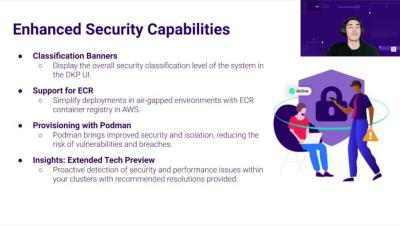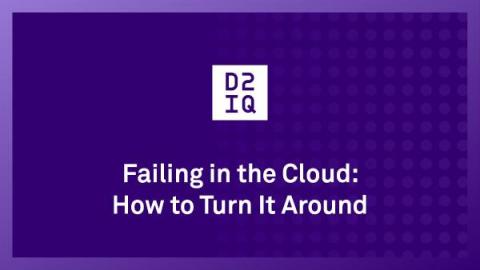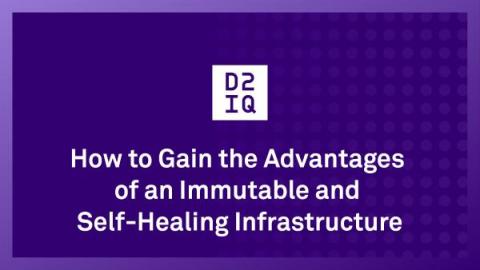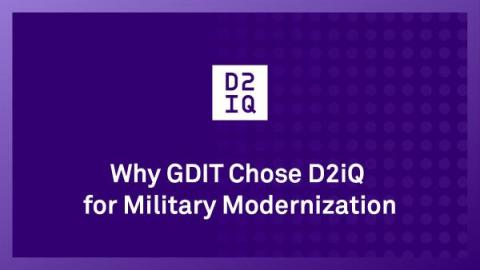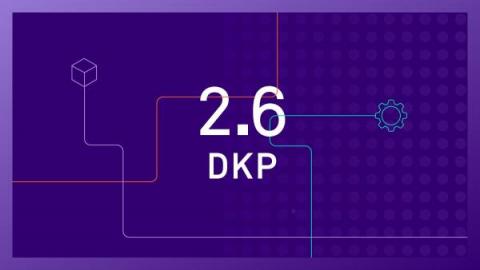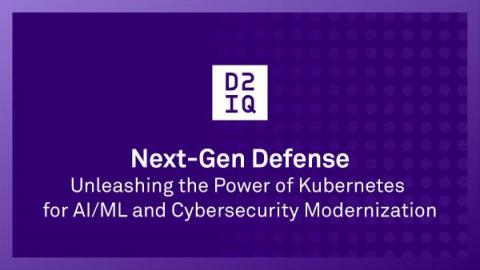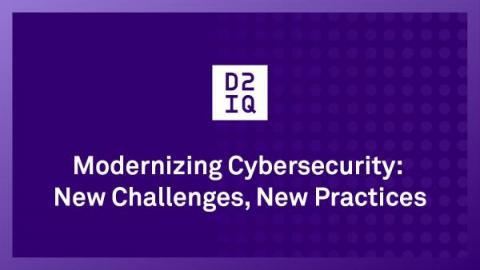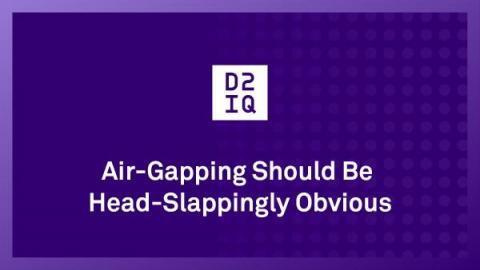Operations | Monitoring | ITSM | DevOps | Cloud
D2IQ
Failing in the Cloud-How to Turn It Around
Success in the cloud continues to be elusive for many organizations. A recent Forbes article describes how financial services firms are struggling to succeed in the cloud, citing Accenture Research that found that only 40% of banks and less than half of insurers fully achieved their expected outcomes from migrating to cloud. Similarly, a 2022 KPMG Technology Survey found that 67% of organizations said they had failed to receive a return on investment in the cloud.
How to Gain the Advantages of an Immutable and Self-Healing Infrastructure
Among the benefits D2iQ customers gain by deploying the D2iQ Kubernetes Platform (DKP) is an immutable and self-healing Kubernetes infrastructure. The benefits include greater reliability, uptime, and security, reduced complexity, and easier Kubernetes cluster management. The key to gaining these capabilities is Cluster API (CAPI). DKP uses CAPI to provision and manage Kubernetes clusters, which imposes an immutable deployment model and enables state reconciliation for Kubernetes clusters.
Kubernetes Management | A Short History of D2iQ
Why GDIT Chose D2iQ for Military Modernization
General Dynamics Information Technology (GDIT) is among the major systems integrators that have chosen D2iQ to create Kubernetes solutions for their U.S. military customers. I spoke with Todd Bracken, GDIT DevSecOps Capability Lead for Defense, about the reasons GDIT chose D2iQ and the types of solutions his group was creating for U.S. military modernization programs using the D2iQ Kubernetes Platform (DKP).
DKP 2.6 Features New AI Navigator to Bridge the Kubernetes Skills Gap
The latest release of the D2iQ Kubernetes Platform (DKP) represents yet another significant boost to DKP’s multi-cloud and multi-cluster management capabilities. D2iQ Kubernetes Platform (DKP) 2.6 features the new DKP AI Navigator, an AI assistant that enables DevOps to more easily manage Kubernetes environments. As Forbes noted in Addressing the Kubernetes Skills Gap, “The Kubernetes skills shortage is impacting companies across sectors.”
Next-Gen Defense: Unleashing the Power of Kubernetes
The U.S. Department of Defense’s Software Modernization Strategy calls for gaining a competitive advantage to achieve strategic and tactical superiority. Leveraging artificial intelligence (AI) and implementing zero trust security are critical parts of the movement to modernize the U.S. military. To this end, U.S. Deputy Secretary of Defense Kathleen H. Hicks issued a memorandum in February 2022 establishing the formation of the DoD Chief Digital and Artificial Intelligence Officer (CDAO).
Modernizing Cybersecurity: New Challenges, New Practices
The practice of cybersecurity is undergoing radical transformation in the face of new threats introduced by new technologies. As a McKinsey & Company survey notes, “an expanding attack surface is driving innovation in cybersecurity.” Kubernetes and the cloud are infrastructure technologies with many moving parts that have introduced new attack surfaces and created a host of new security challenges.
Air-Gapping Should Be Head-Slappingly Obvious
When you think of air-gapped security, you imagine a protective distancing that separates your sensitive data from those who would steal it. In practice, the separation is a disconnection from the Internet. If no one can get to your data, no one can steal it. However, air-gapped deployments that are completely disconnected from the Internet are not the case in all instances. It’s true that many clusters are fully air-gapped, particularly in classified government installations.


